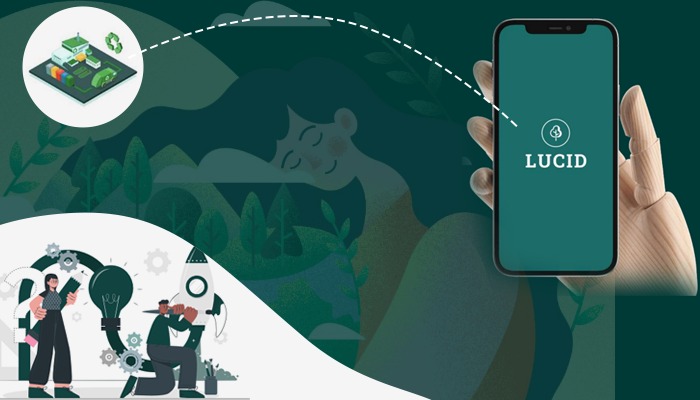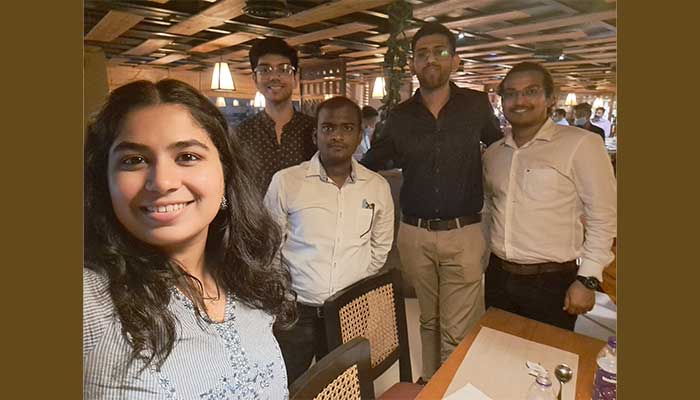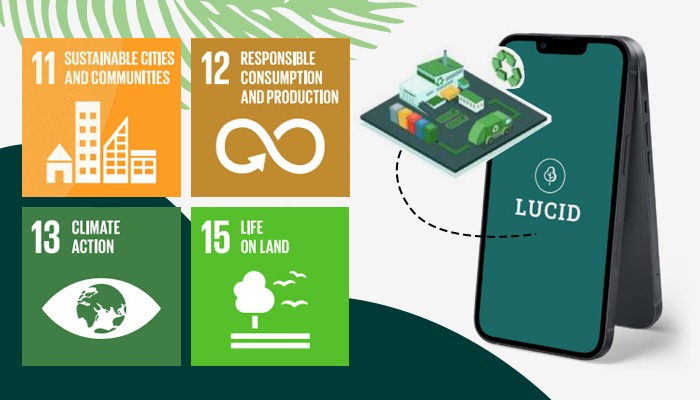The online platform which aims to serve as a link not only between consumers of single-use plastics with waste management companies but also between upcyclers and buyers of upcycled products emerged winner in the D’Source DIC-BHU SDGs Design Challenge under the Interaction Design category.
One emerging and popular way of addressing societal problems is via innovation challenges that leverage public creativity. An international design competition jointly conducted by D’source, Ministry of Human Resources & Development (MHRD, GOI), IDC School of Design- Indian Institute of Technology, Bombay , Department of Design- Indian Institute of Technology, Guwahati, Design Innovation Centre- Banaras Hindu University,Cumulus Systems and Designindia Magazine took the same route to solicit innovative design solutions for the United Nations Sustainable Development Goals (SDGs). Out of the 17 SDGs, the organisers identified key 8 problem areas of industry, innovation and infrastructure (SDG 9), reduced inequalities (SDG 10), sustainable cities and communities (SDG 11), responsible consumption and production (SDG 12), climate action (SDG 13), life below water (SDG 14), life on land (SDG 15), and peace, justice, and strong institutions (SDG 16). There were various categories such as animation design, product design, narrative design, game/toy design and so on with well detailed out problem statements for each category.

Where Design Makes A Difference
The IIITH winning team comprising MTech (Product Design and Management) students Shambhavi Ojha, Aniket Chandekar, Anuj Malviya, Vinaya Gopi and Venkat Sai Nadakudati submitted their solution for ‘Design of an interactive digital system to address problems concerning services for SDGs 11,12,13 and 15’. According to the team, some of the conditions listed out included the mandatory use of interactive technologies including ICT, mobile and others, suitability of the solution for use in specific locations such as rural, urban, remote etc, ability to be deployed in a wide array of locations where ever a group of people need to access the said service and adequate consideration to time management aspects such as booking a time slot, queuing and so on.
Burning Problem
Governments the world over have recognised that plastic products such as disposable packaging material, cutlery, straws, stirrers, and so on are the most problematic single-use plastics contributing to about 79% of landfills. While India has taken a definitive step forward in this direction by placing a ban on the manufacture, import, stocking, distribution, sale and use of 19 single-use plastic items from Dec 31, 2022, its enforcement has not been stringent. The team’s research findings revealed that only 30% of India’s annual plastic waste production is recycled with the remaining waste disposed off in landfills, the ocean or burned. They also found that community waste management solutions such as waste bins, waste collection vehicles and so on were either inadequate or missing in the rural areas. “Our survey revealed that more than 65% of kabadiwalas do not accept single-use plastics due to its low value and hence it is often burned by households, affecting air quality and causing severe health consequences,” says Aniket.
Connecting Stakeholders Digitally
To close the loop on single-use plastics, and come up with an effective solution to counter the burning problem, the MTech students proposed a way to increase the collection and proper disposal of plastic waste especially in rural India by developing a digital platform connecting the relevant stakeholders in the waste ecosystem. Titled Lucid to emphasise the clarity of its solution to the complex problem of plastic pollution, the winning submission comprises of both a toll-free number as well as an app that makes it easy for consumers to schedule a pick up of recyclable plastic waste from the comfort of their homes. “We wanted to solve the imbalance between demand for and availability of upcyclable waste materials. With Lucid Marketplace, anyone from households to large-scale waste generators can list their upcyclable waste on our platform and upcyclers can bid on them. Plus, users receive credit points in their account. Upcyclers can use the same platform to showcase their products which can be redeemed by the credit points if one wishes to buy from them or else, the points can be redeemed into cash,” explains Shambhavi.

A Winning Habit
The IIITH team seems to have unlocked the secret to winning accolades at various competitions individually as well as a group. As a team, they recently made news by bagging the Silver Award at the London Design Awards in the Health Service Category. They were also World finalists at the Service Design Network Awards, a premier international award for service design and as well as the International Student Service Design Competition in 2023. At the national level, the team was a finalist at the CII Young Designer Awards 2023. Individually too, they have made their mark in various challenges from Shambhavi winning the Silver Award in the 7th mini product challenge organised by Airtribe, Anuj walking away with Gold at the ‘Shunya’ – Sustainability Challenge organised by TelioEV, Anuj and Aniket emerging as finalists at the Salesforce Design Days 2022, the trio of Anuj, Gopi and Venkat emerging as runners-up in the Autodesk Instructables challenge and so on. “Our team really thrives on the complementary skillsets that each member brings on board,” remarks Shambhavi. She goes on to add, “Aniket is our guy for all visually appealing tasks, Anuj and Gopi come with industry experience of 6 and 13 years respectively, bringing a very practical point of view on the table that help us articulate theories to the practical world. Venkat is the youngest and has an innovative, quirky and GenZ outlook to things, while I am good with critical thinking and logical applications. I come from a core software background and hence think of end-to-end solutioning and viability of concepts.”
Winners Share It All
With the hope that the winning entries will benefit anyone ‘in these trying times’, the Design Challenge organisers are making the solutions available for free to download and use as part of the design initiative. Additionally, all winning submissions will be published in three formats – 1) online, 2) printed as a book 3) displayed in a travelling exhibition. Along with a certificate for winning the D’Source-DIC, BHU SDGs Design Challenge Merit Award, each winning participant will be given a medal for Design Contribution and a copy of the soon-to-be-published book.
To know more about Lucid, click here.



Next post